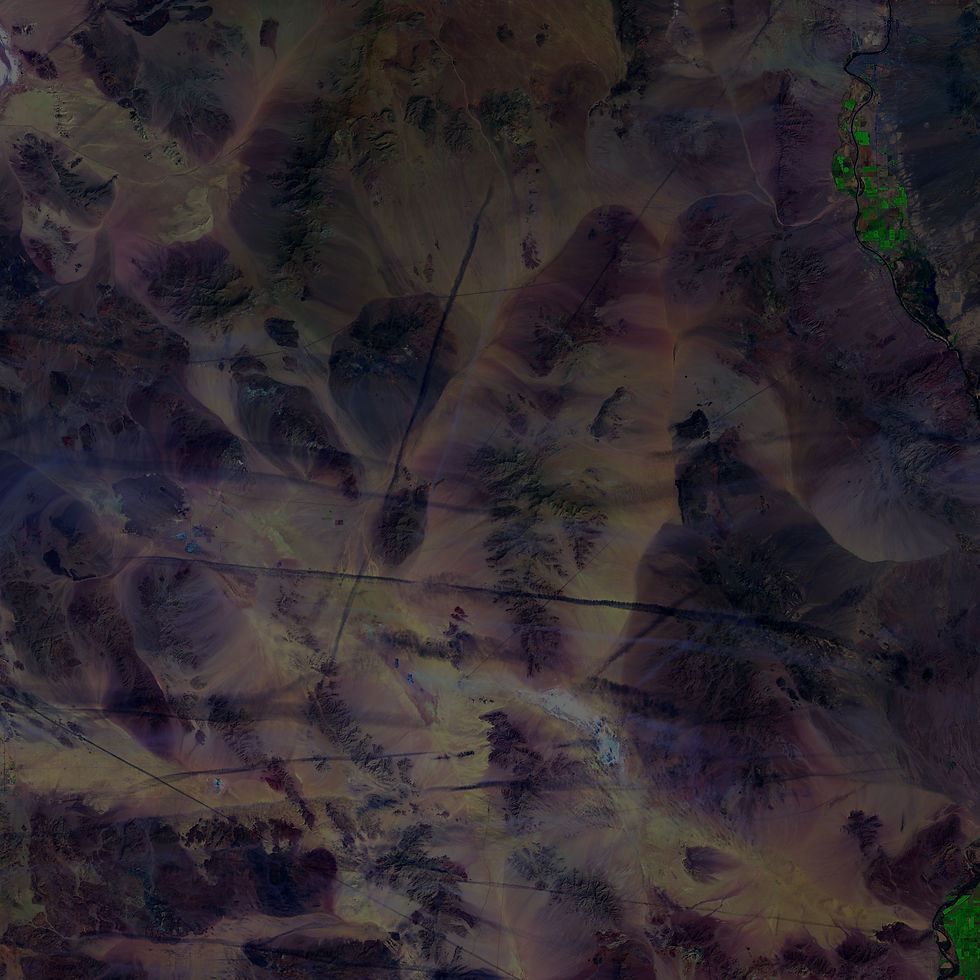top of page
Ciclo 2019-2026: Metahumanismo y hábitats experimentales
Enfasis en proyecto e investigación tecnológica, EAU, UN

Más allá de la sostenibilidad +
Nuevas Materialidades +
Amenazas y Resiliencia + Bioclimática
Andrés IBAÑEZ +
Andrés F. PEREZ + Daniel ROJAS +
David PERICO
TWIN LANDS
Nature based solutions from the dry tropical forest for seasonal and climate change adaptation
“Twin Lands” is a technology transfer program aimed to bring nature-based solutions found in Colombian Ecosystems to Northern Africa for climate change adaptation. Life in the Sahel area depends on how well it can cope with the extremes of a bi-seasonal climate: long periods of drought and rainy times. The dry tropical forest in Colombia has similar climatic conditions to the Sahel, and it´s a unique ecosystem in the world because it is remarkably well adapted to long periods of drought, supporting biodiversity and abundance of life despite the lack or excess of water. The eco-incremental lab is an awarded biomimicry research-based spin off from Colombia that has been studying a variety of organisms in unique ecosystems to find feasible nature-inspired technologies and solutions to practical problems related to climate change adaptation in human-managed settings. "Twin Lands" aims to transfer biological strategies for climate adaptation found in the dry tropical forest in Colombia to specific areas of the Sahel for water and soil management solutions, after a 3-year biomimicry research pool on paramos and dry tropical forests.

THE PROBLEM
The Sahel Area is highly vulnerable to climate change. The Sahel has lost 80% of its agricultural productivity potential due to global warming. Last year nearly half million people were affected by floods and large number of casualties affected single countries like Niger (80). Severe sandstorms have caused loses in agriculture and cattle activities in recent years. The eight-month drought period (from October to June) has been growing longer over the las 3 decades. These examples encompass an overall lack of synchronicity between climate behavior and local ecosystems and communities, making it even harder for the soil and vegetation cover to be restored. Most of attention and responses related to climate change globally are given to mitigation, like reduction of GHG and carbon sequestration. However, there are places on the planet that are heavily affected by climate change. Unless these places can adapt to the hotter and dryer climate regimes, they simply won´t maintain life, and the Sahel is one of them. There are multiple technological approaches to climate change adaptation, yet most of them are still in their infancy as they have been in operation only for years or decades and still need to be tested and evaluated in the long run. The dry tropical forest in Colombia has over a million-year history of evolution to cope with extreme dry and wet seasons. The Eco-incremental lab stands on nature´s vast experience in a Megadiverse country like Colombia to provide a vast repertoire of solutions for the inherent variable seasonal climate in the Sahel and augment its resilience to climate alteration.

OUR VISION
Our vision is a territory that is better connected to nature, and people betted equipped to stand natural disasters and climate change. More natural based solutions and less introduced technologies that can cause disruptions with natural systems and humans.
The impact can be measured by comparing the performance of the proposed biomimicry strategies for climate adaptation in comparison to non-nature-based solutions that are energy, information, or technology over-demanding. Another indicator of the success it the level of acceptance of these technologies by local communities and groups, are African people more aligned with nature and willing to respond to solutions that let nature do the work, better than sophisticated technologies brought from abroad? Can biomimicry strategies be more effective to achieve the targets of the GGW?

HOW IT WORKS
Colombia is the most biodiverse country per square surface area. Over the last 5 years, the Eco-incremental Lab has focused on unique ecosystems only occurring in this Megabiodiverse country to transfer and scale solutions that are applicable also to other countries and geographical locations. During the last couple of years, the team has studied the dry tropical forest ecosystem, one of the most endangered and least studied in comparison to other tropical ecosystems like rain forest. The research-based design approach followed by the design team is based on the scientific reports and investigations by Alexander Von Humboldt Institute. With base in Colombia, the Eco incremental Lab understands the developing countries needs and challenges. This led the team to target a low-cost and simplicity approach to their solutions. This represents an advantage over other technological approaches and teams with little experience in the third world. Finally, a human plus to this nature-based approach is the recovery of the ancient African sense of belonging and connection with nature.

RESEARCH
The Eco-incremental Lab was awarded the first place in the Global Biomimicry Challenge 2019, and were finalists in the Climate Launch Pad, Colombia, 2019. The Lab has been studying the Dry Tropical Forest in Colombia for two years now, under the Research pool biomimicry methodology. The study in being conducted in collaboration with biologists at the Alexander Von Humboldt Institute and the department of Biology at National University of Colombia.



bottom of page